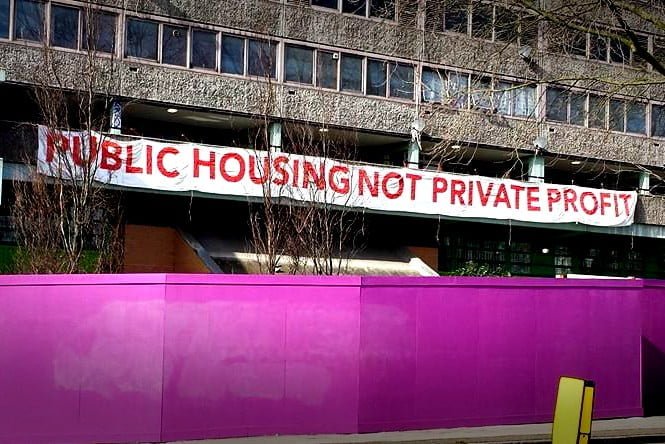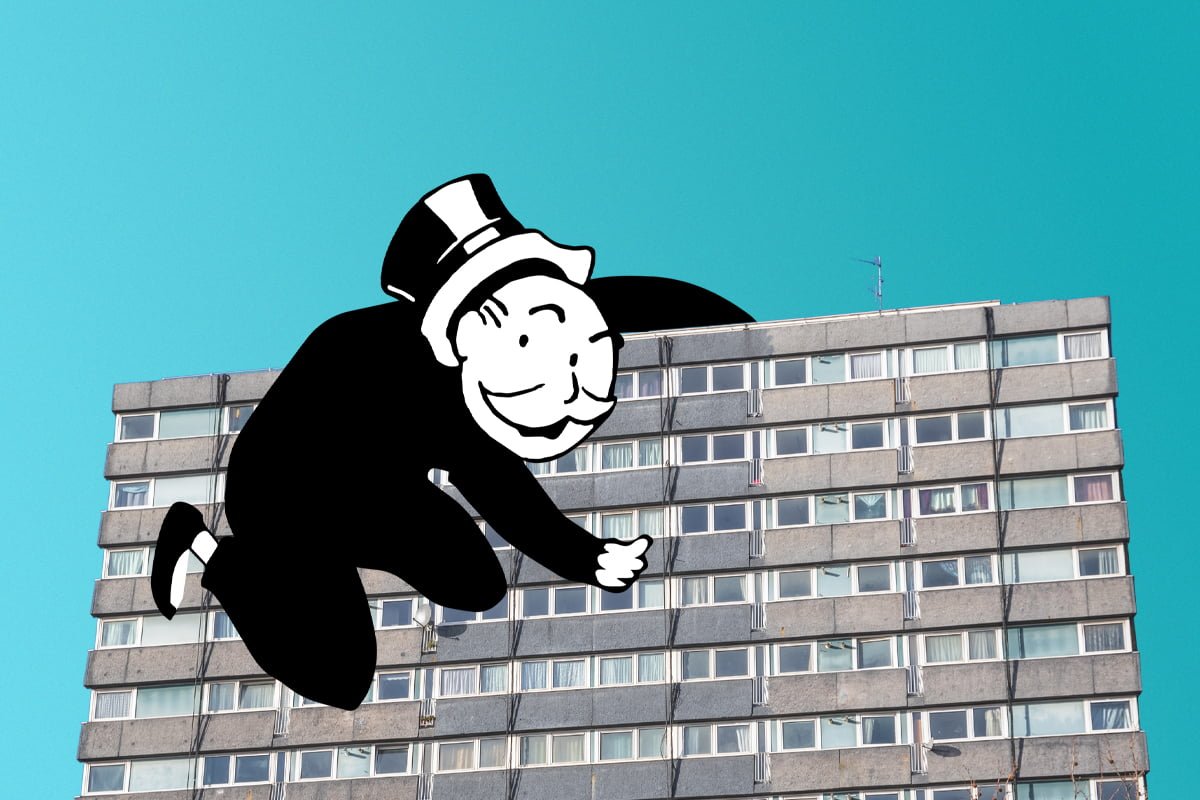After years of talk, the Tories have finally put forward their Renters’ Reform Bill, aiming to address the crisis facing millions living in privately rented accommodation.
Unsurprisingly, this legislation is completely toothless, and entirely fails to address the roots of the problem.
In reality, the Tory Party has no interest in taking on landlords, or reducing the billions that these parasites are raking in at tenants’ and taxpayers’ expense.
‘Horror homes’

Among the most egregious crimes of UK landlords is their pocketing of around £1.6 billion in housing benefit every year from tenants in so-called ‘horror homes’.
This makes up a large proportion of the £9 billion landlords make annually from renting out substandard properties.
Across the country, millions wallow in dangerous and dilapidated housing, while falling into massive debts just to make ends meet.
Squalid housing conditions are widespread in Britain, accounting for 10% of social housing and 23% of private rentals.
These dwellings are in such a state of disrepair that they pose a risk to the health and safety of those living in them.
This has led to tragic cases such as the death of toddler Awaab Ishak, who died due to severe mould exposure in December 2020.
London exodus
In London, the housing crisis is compounded by an astronomical and unaffordable rise in rents, which are soaring far above any increase in wages.
The situation is particularly dire for younger families. London rents for 25-to-39 year-olds average at 36% of household income.
This is leading to an exodus of young workers from the capital, with an associated closure of schools and nurseries. For those remaining in the city, one in six find themselves in poor quality housing.
This is creating headaches for the bosses, exacerbating labour shortages in this vital engine of the UK economy. And this, in turn, explains why both the Tories and Starmer’s Labour are belatedly showing an interest in alleviating the suffocating conditions facing renters.
Yet there is a glaring contradiction amidst London’s ‘housing shortage’. While rents are going through the roof, the number of empty homes in the city is rising. Some 34,327 properties are classed as long-term vacant – the highest since 2010.
Evictions
The government’s new renters’ bill proposes to address some of these issues, with measures aimed at tackling slum housing, ‘no fault’ evictions, and above market-level rent increases.
Section 21 ‘no fault’ evictions are a scourge for renters. This threat often leads to tenants being too afraid to complain about poor housing conditions.
In the first three months of 2023 alone, there were 2,252 such evictions, compared to 1,045 in the same period from the previous year.
The abolition of this menace would be entirely welcome – if such a protection could actually be guaranteed.
In reality, however, landlords will still find plenty of ‘faults’ to allow them to circumvent this new legislation and evict their tenants. The bill, for example, offers provisions for landlords to evict occupants based on ‘anti-social behaviour’ and rent arrears.
At the same time, trying to limit rent increases to market prices, ignores the obvious problem: the rise in market prices.
The problem of extortionate rents is not one of a few crooked landlords raising rents for some individuals. It is a product of the anarchic capitalist system itself.
Socialist solution
The Tories will never truly tackle this crisis facing UK renters. The role of the state, after all, is precisely to protect the property and profits of the capitalist class, including the landlords.

This is especially true in Britain today, as many MPs – of all the traditional parties – are landlords, bankers, and bosses themselves.
Neither the Tories nor Starmer’s Labour will genuinely clip the landlords’ wings. Their meagre soft-touch legislation will never push landlords to be kinder and more considerate.
Instead, tenants and renters should get organised and fight for a socialist programme to combat the housing crisis.
Recent years have seen a welcome flourishing of renters’ unions, tenants organisations, and community-based campaigns against evictions, rogue landlords, and unpayable debts.
These grassroots efforts should be linked up with the labour movement, and organised around clear socialist policies: for the nationalisation of the banks and property developers; the requisitioning of empty homes; and the expropriation of the properties held by fat-cat landlords and management companies.
On the basis of public ownership and democratic workers’ control, hundreds of thousands of decent homes could be built; similar numbers of vacant dwellings could be put to use; and high-quality housing could be provided for everyone.






